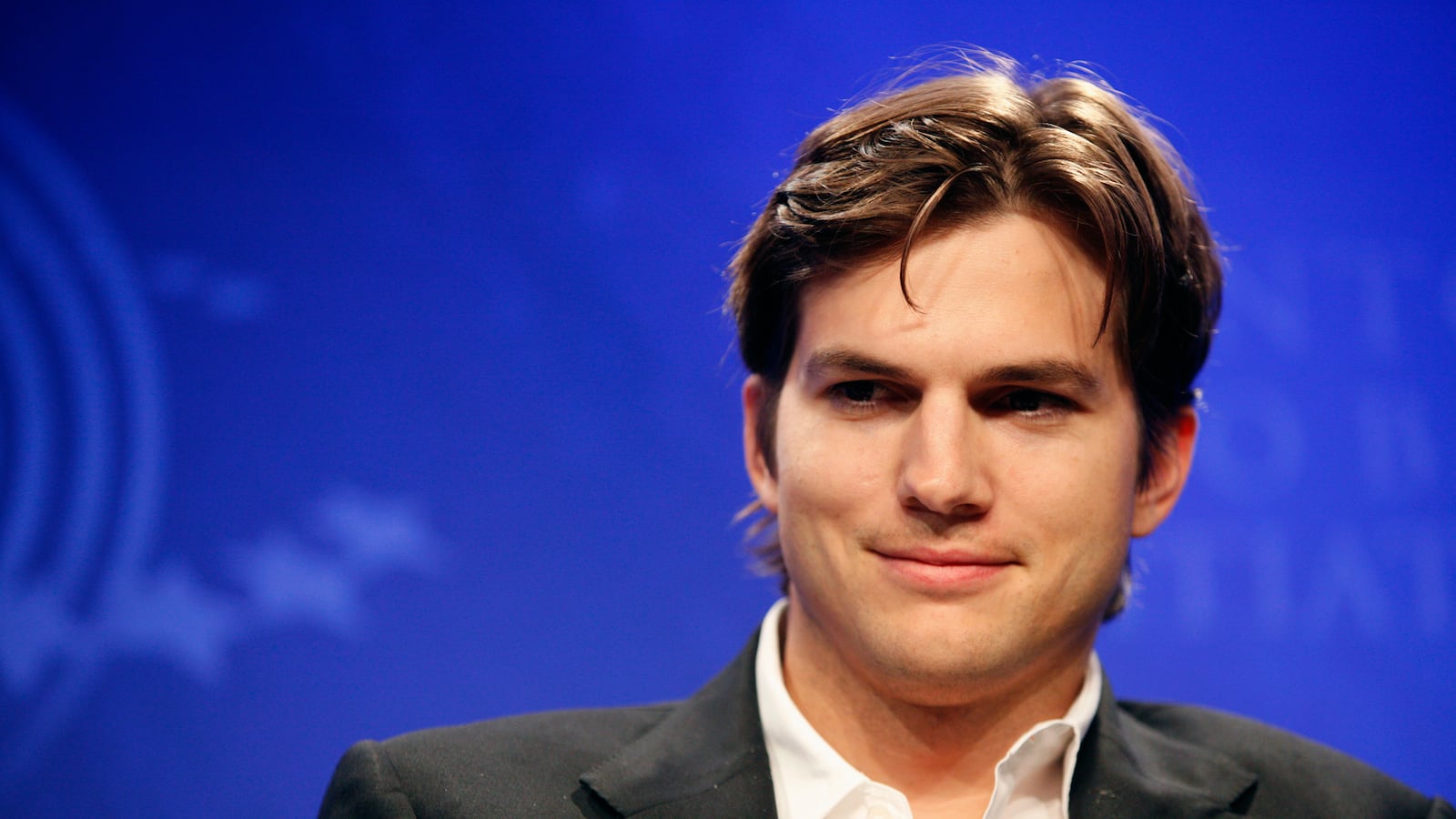Anonymous confessional app “Secret” got a 6 foot 2 inch present for its 45-day birthday: Ashton Kutcher.
Just days after the social secret-sharing app—along with a similar model, Whisper—made headlines for allegedly raking in a combined total of $40 million, the company refuted the claims. “The reports about our funding are all speculative and incorrect,” a spokesperson from Secret told The Daily Beast Wednesday.

In an effort to clear the air, the company released a statement early Friday afternoon clarifying the amount they’ve brought in and plugging their new “Series A” (which, ironically, remains a secret).
While $1.4M less than the $10M reported, the $8.6M in new capital Secret gained this week is a birthday gift worth opening. Money aside, the group of nearly 20 donors is A-list enough to warrant an E! News red carpet. Among the surprises is Demi Moore’s former hubby Ashton Kutcher, famed quarterback Joe Montana, former COO of PayPal David Sacks, and founder of Mashable Pete Cashmore. “Our Series A funding enables us to curate a small, passionate team of artists and builders, listen closely to the community and continue to focus on the work in order to make it happen,” Secret writes.
But the ego stroking isn’t finished yet.
“Our vision is to create a world flowing with authenticity,” Secret writes. “Being more open with each other brings us closer together, builds understanding, and ultimately makes the world a better place.”
But does it?
A landmark 2002 study from The Journal of Community & Applied Social Psychology out of the University of Portsmouth was one of the first to investigate this idea in an experiment that analyzed the effects of secret keeping and disclosure in everyday life. In the study, researchers administered two questionnaires to a group of college students, with a four-month span in between. The findings offered evidence to challenge the functional analysis of secret-keeping—that concealing truths leads to harmful consequences and has the potential to damage relationships. Instead, researchers in the study found “no positive effects for secret disclosure.” Changes in the students’ psychological and physical well being, as well as self-esteem, showed no statistical difference.
The research casts doubt on Secret’s claim that telling the world you “wish four golden retrievers were your actual family” actually improves your life.
But other research since clouds the evidence. A paper in The Journal of Adolescence, released just last month, studied the same effect (secret-keeping and disclosure) on 790 Dutch adolescents. The results showed that shared secrets were linked to higher interpersonal functioning, while kept secrets caused depression, loneliness, and lower-quality relationships.
With a lack of indisputable evidence on either side, apps like Secret can make a convincing argument that every tiny secret thought is worth sharing. “As the platform evolves, it becomes more clear that Secret truly shines in its ability to spark intriguing, meaningful and provocative conversations with unprecedented levels of authenticity,” they tell visitors.
Most of the posts—featuring kind, thoughtful, restores-your-faith-in-humanity type of statements—align with the lofty statement. “I love making my wife breakfast each morning,” writes one person, above bowl of delicious-looking oatmeal. “Just found out I’m going to be a Dad!” another reads, on top of a picture of a positive pregnancy test.

But like most social media sites, there seems an obvious downside to allowing users free reign to air their dirty laundry anonymously. If the functional analysis of secret-sharing—the one Secret’s business model rests on—is true, then they’re sort of missing the point. Sure revealing that you secretly like to paint might be relieving, but what next? By confessing these truths anonymously, sending them out into the Internet’s ether, we’re missing the ability to strengthen relationships through sharing. A friend may have convinced you to sign up for a painting class in response—Secret won’t do that. Or with $8.6M to blow, maybe it soon will? Regardless, as long as humans continue to crave approval, an app where you can (sort of) get that will succeed.
Secrets secrets are no fun, unless they’re shared with everyone.






